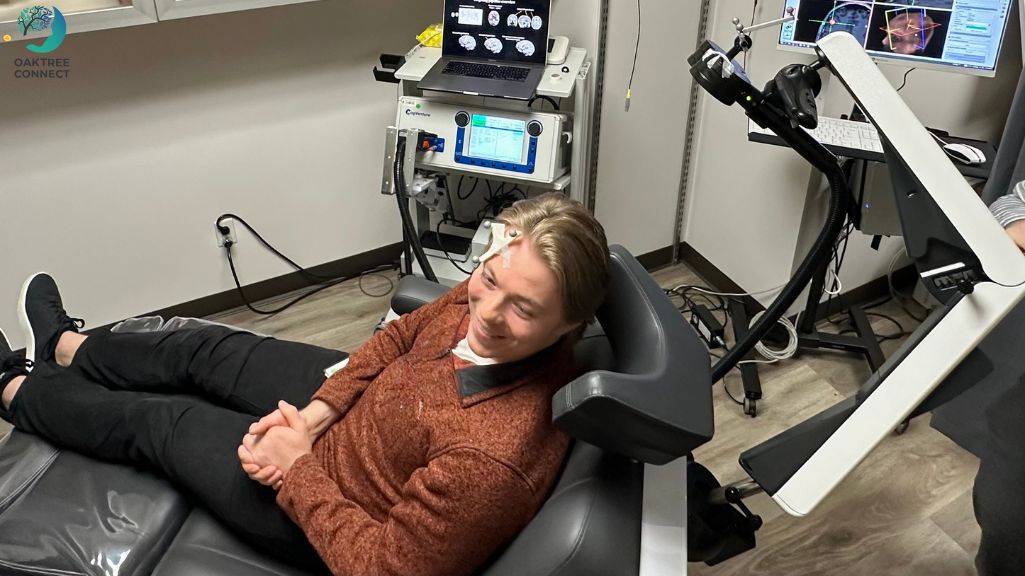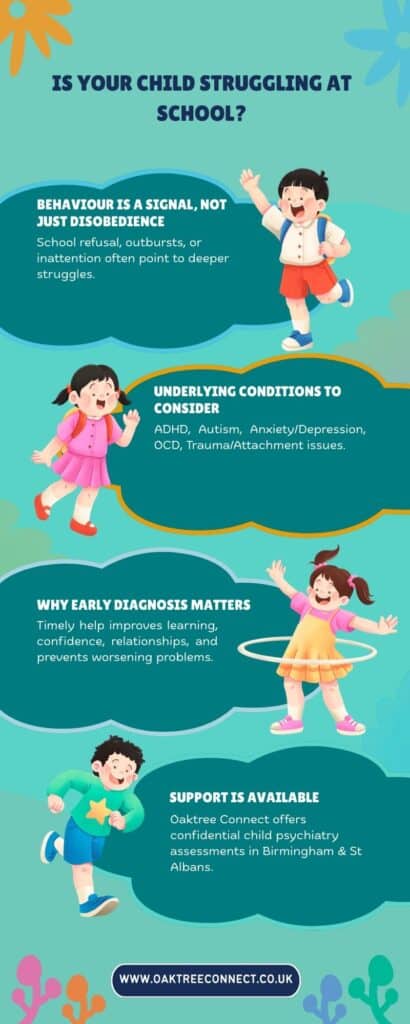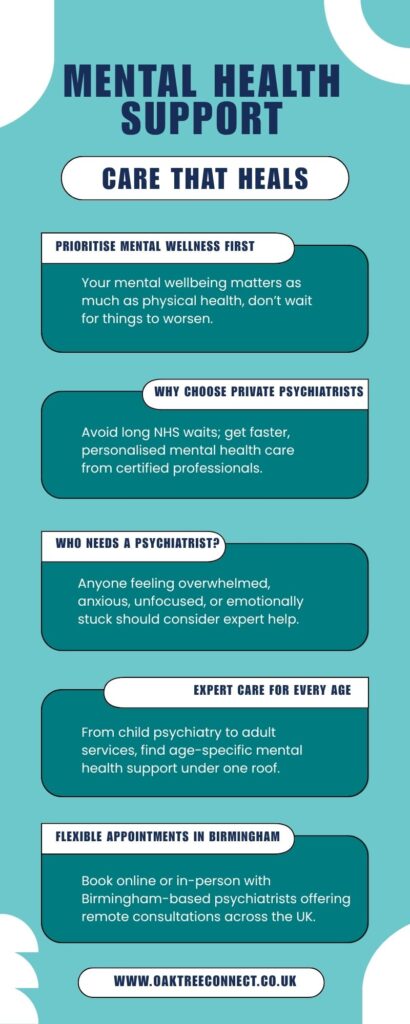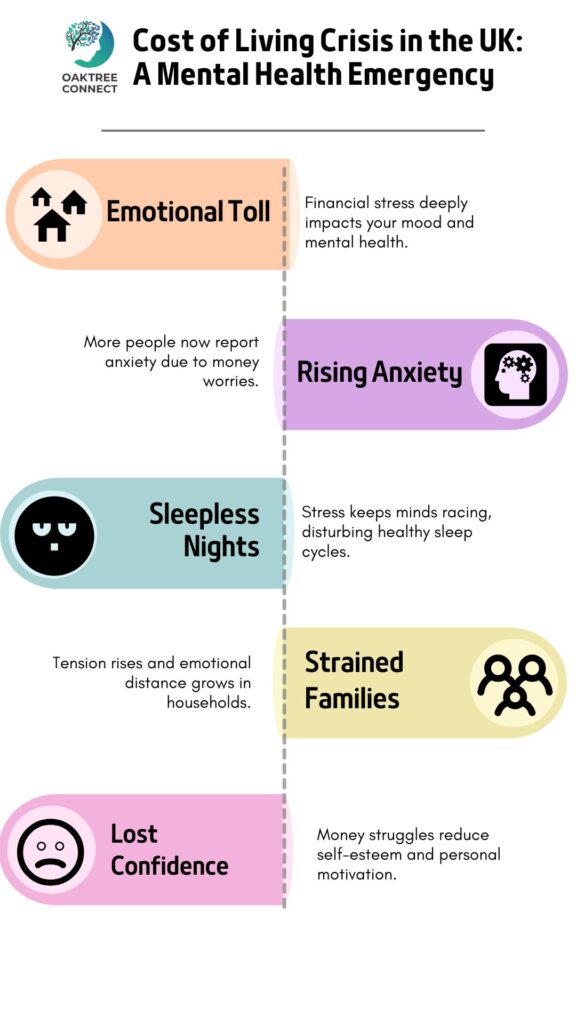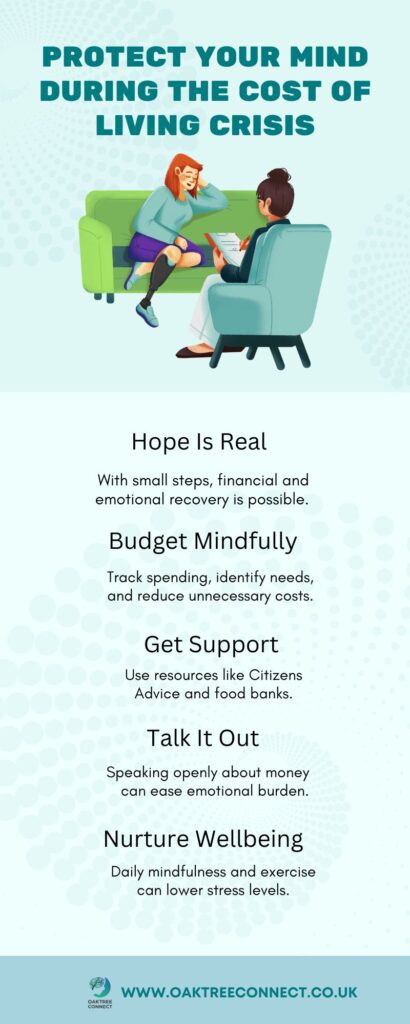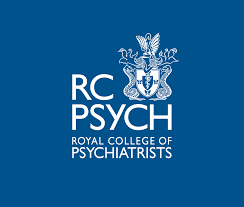Do I Need a Psychiatric Assessment? Signs It’s Time to See a Private Psychiatrist in the UK

"Seeking clarity about your mental health is not a sign of weakness, it is a courageous step towards understanding, stability and healing."
— Oaktree Connect
If you have been struggling with your mental health and cannot quite make sense of what is happening, you may be wondering whether a private psychiatric assessment UK or consultation with a private psychiatrist UK is the right step with the waiting periods to see one in the NHS becoming increasingly difficult.
Many people delay seeking help because they feel they should be coping better or assume that their symptoms are not serious enough. Some may feel inhibited to seek help due to the stigma attached to mental illness or fear of appearing less strong. A psychiatric assessment is not only for crisis situations, preventing emotional issues escalating into a crisis is obviously better, likely to reduce disability and definitely safer.
Psychiatric assessment is a structured medical consultation designed to understand your symptoms clearly and decide whether treatment and or future care is needed. At Oaktree Connect, assessments are led by experienced UK consultant psychiatrists with NHS and private practice backgrounds and delivered securely online across England and Wales.
What Does a Psychiatric Assessment Involve?
A psychiatric assessment is a detailed medical review carried out by a doctor who specialises in mental health following completion of a general medicine and surgery qualification. During the appointment, the psychiatrist will explore your current symptoms, how long they have been present, and how they are affecting your work, relationships and daily functioning. They will also review your physical health history, any previous treatments and relevant family background. The aim is to understand the full picture, physical and mental health, and determine whether your experiences meet recognised diagnostic criteria for a mental disorder siagnosis. This process allows for clinical clarity and a carefully considered treatment plan where appropriate.
When Should You Consider a Private Psychiatric Assessment UK?
You might consider a private psychiatric assessment in the UK if your symptoms are persistent, Signs that may indicate mental ill health are not being able to fall asleep, waking up earlier than usual for you, racing thoughts, not enjoying the activities that otherwise are a source of joy, loss of focus at work and home and other similar changes. Ongoing low mood, significant anxiety, interfering with everyday life.
Some experience periods of unusually elevated mood, irritability or impulsive behaviour that feel out of character. Others suspect ADHD or another neurodevelopmental condition and want a formal medical opinion. A psychiatric review can give clarity and direction by providing a diagnosis that helps construct a comprehensive tailor made treatment programme.

How Oaktree Connect Psychiatrists Assess and Diagnose
Our consultant psychiatrists conduct structured online or face to face assessments using recognised diagnostic frameworks. The consultation includes a thorough clinical history and careful consideration of both psychological and physical health factors. This is the main difference between a psychiatric and psychological assessment.
Mental health symptoms often overlap, and part of the psychiatrist’s role is to distinguish between similar conditions safely. After the assessment, you will receive a clear explanation of findings and written recommendations. If a diagnosis is made, they will discuss this fully with you, along with the reasoning behind it.
Treatment Options After Assessment
Treatment depends on your individual circumstances and diagnosis. This may include medication, advice about whether to seek specific therapies proven to work in people with similar mental disorder to yours, lifestyle advice, signposting to other organisations or professionals who may be able to assist.
Psychiatrists are medically qualified to prescribe and monitor medication when clinically indicated, including treatments for depression, anxiety disorders, bipolar disorder and ADHD . Medication decisions are made carefully, with discussion of expected benefits and potential side effects. Where psychological therapy would be beneficial, we can integrate structured approaches such as cognitive behavioural therapy delivered by qualified clinicians. In certain cases of treatment-resistant depression, specialist options such as rTMS may be considered following a full medical assessment .
Why Choose Doctor-Led Assessment?
A psychiatrist is a medical doctor with specialist training in mental health after full medical training (Physical Health). This means your symptoms are assessed from both a biological and psychological perspective.
Doctor-led care allows for accurate diagnosis, safe prescribing and appropriate referral if further investigations are required. It also ensures that complex or overlapping conditions are not overlooked. Once your medication is started, psychiatrists are better qualified to recognise, investigate and treat any physical side effects, interactions with medications you maybe taking for any other illness.
For patients, having clear medical oversight a highly qualified care coordinator who is not only well informed in biological, psychological and social aspects of mental health but also has verified qualifications in all these fields. This brings reassurance and structure to their treatment plan.
Access and Fees
Oaktree Connect provides UK-wide online psychiatric assessments for adults and children . Adult psychiatric assessments are typically priced between £395–£450, with child assessments starting from £600, and transparent pricing outlined in advance. Where appropriate, instalment options are available to improve accessibility. Appointments are often available sooner than standard NHS waiting times, allowing earlier access to diagnostic clarity and treatment planning.
Important Safety Information
Oaktree Connect is not an emergency service. If you are at immediate risk or feel unable to keep yourself safe, call 999 or attend your nearest A&E department. For urgent but non-life-threatening concerns, contact NHS 111 or your local crisis service.
Seeking assessment is a responsible step towards understanding your mental health properly. Clear diagnosis allows for safer, more targeted treatment.
Book a confidential online psychiatric assessment with Oaktree Connect.
Visit: https://www.oaktreeconnect.co.uk/mental-health-services-online/
Tel: +44 7532 650617
Disorder Related Blogs
- Anorexia Nervosa: Recognise the Quiet Killer
- Patient Talk - What Does Severe Clinical Depression Feel Like?
- Dear Mum: A Story by an Oaktree Patient with Depression
- SCHIZOPHRENIA – A Poem
- Autism: Dispelling Myths
- Mental Fitness: “I Have an Addiction”
Lifestyle Related Blogs
- Preventing Online Burnout
- Sad at Christmas? Help Is at Hand
- Burnout at Work
- Mental Fitness: How to Beat Stress
- Mental fitness: Brain Stimulation Therapy
- Mental Fitness: When Should You Stop Driving?
- Mental Fitness: “Let Us Talk About It”
- How to Combat Work-Related Stress
- Foods that make you happy
- Business Spending on Mental Health, Worth it?
- Employers Need More Awareness of Mental Health Issues
Other Blogs
Are you a leader and need mentoring or coaching? We may be able to help. Contact us at contact@oaktreeconnect.co.uk.
Author: Dr Sobia Rafi
Dr Rafi is the Child and Adolescent Psychiatrist, Oaktree Connect. With 20 years she is a highly skilled and experienced psychiatrist specializing in the assessment and management of both common and complex psychiatric and behavioral disorders in children and adolescents.
Contact:
Email – clinicadmin@oaktreeconnect.co.uk
Telephone – +44 75115 46374
Recent Blogs
Oaktree Connect Fees & Pricing for Other Services
There may be additional fees payable after your assessment, for which you will receive an invoice: for example, for the costs for prescribing medication agreed between you and the psychiatrist at the time of assessment. We try our utmost to stay within the time allocated for the appointment however, you could be charged for any extra time spent in the consultation, if the meeting runs over the allocated time, or where communications with you or reviewing notes etc. exceeds what is deemed reasonable, but this is at the discretion of the clinician.





